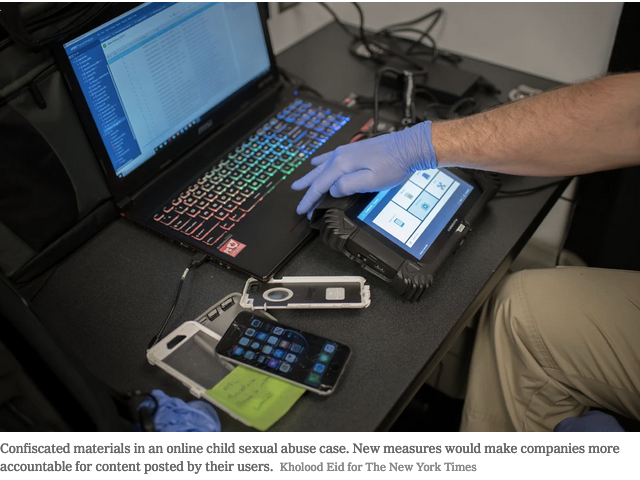Legislation announced on Thursday aimed at curbing the spread of online child sexual abuse imagery would take the extraordinary step of removing legal protections for tech companies that fail to police the illegal content. A separate, international initiative that was also announced takes a softer approach, getting the industry to voluntarily embrace standards for combating the material.
The two measures come as tech companies continue to detect an explosion of abusive content on their platforms, and amid complaints that neither Congress nor the companies have been aggressive enough in stopping its spread. An investigation last year by The New York Times found that many companies knew about the problem but failed to quash it, despite having the tools to do so, and that the federal government had not been adequately enforcing a previous law meant to stem the abuse.
Multiple U.S. agencies, together with the governments of Britain, Canada, Australia and New Zealand, released a set of voluntary guidelines on how platforms can stop the spread of online child sexual abuse material, commonly referred to as child pornography. Those recommendations were developed in conjunction with a half-dozen tech companies: Facebook, Google, Microsoft, Roblox, Snap and Twitter.
The bipartisan legislation likewise calls for industry standards, and creates a strong incentive for companies to adopt them. The bill’s sponsors, Senators Lindsey Graham of South Carolina and Richard Blumenthal of Connecticut, said it was spurred on by The Times investigation.




